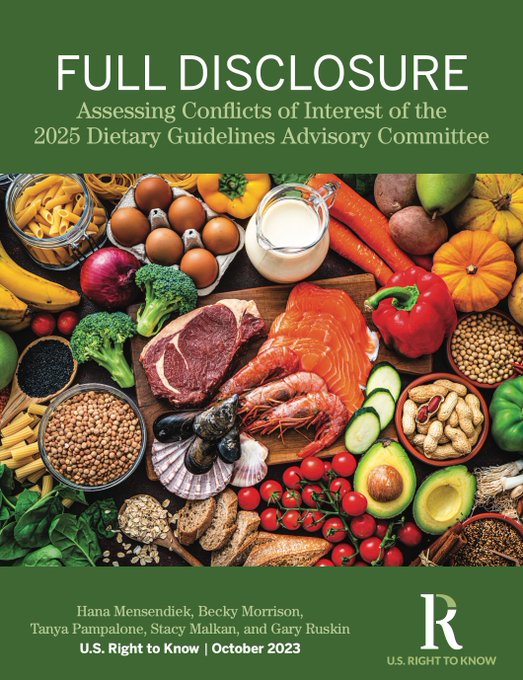October 6, 2023
"Millions of
Americans' lives are affected by this report and it's crucial that the report
tell the truth to American people and it's not degraded into another sales
pitch for Big Food and Big Pharma."
Nearly half the members of
the U.S. government panel that helps draft dietary guidelines for Americans
have ties to the food, pharmaceutical, or weight loss industry, a report
released this week revealed.
"Food and
pharmaceutical industry actors have historically sought to influence the U.S.
Dietary Guidelines for Americans (DGA), and have had financial ties to
nutrition experts on the Dietary Guidelines Advisory Committee (DGAC), which
reviews the latest science on diet, nutrition, and health outcomes to make
recommendations for the DGA," states the report, which was authored by
researchers at the advocacy group U.S. Right to Know.
"We found that 13 of
20 DGAC members had high-risk, medium-risk, or possible conflicts of interest
with industry actors," the authors wrote.
Of these, nine were high-
or medium-risk conflicts with companies and industry groups including
Coca-Cola, the Nestlé Nutrition Institute, National Dairy Council, Weight
Watchers International, Beyond Meat, the California Walnut Commission, and the
National Egg Board. Big Pharma giants including Pfizer, Abbott, Novo Nordisk,
and Eli Lilly are also named in the report.
U.S. Right to Know
executive director Gary Ruskin told The Guardian that revelations like those in
the report erode consumer confidence in government dietary guidelines.
"Millions of
Americans' lives are affected by this report and it's crucial that the report
tell the truth to American people and it's not degraded into another sales
pitch for Big Food and Big Pharma," Ruskin said.
The report also notes some
"encouraging findings," including that "seven members had no
relationships in the past five years that met our definition" of conflicts
of interest, and that "four members only had one instance" of
possible conflicts.
"Surely, there is room
for further improvement," the publication states. "With high-risk
conflicts of interest still present on the DGAC,
the public cannot have
confidence that the official dietary advice of the U.S. government is free from
industry influence."
The report's authors offer
recommendations for the U.S. Department of Health and Human Services and U.S.
Department of Agriculture, including:
- Not appointing DGAC members with high-risk conflicts of interest;
- Disclosing individual members' conflicts during the last five years;
- Using a better disclosure form;
- Publishing a list of provisional appointees prior to appointment, open for public comment; and
- Including leadership roles or paid roles at conflicted nutrition organizations in disclosures of potential conflicts of interest.
The group also called on
Congress to expand the Physician Payments Sunshine Act to cover the nutrition
field.


No comments:
Post a Comment